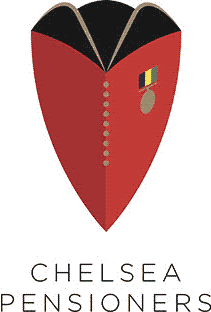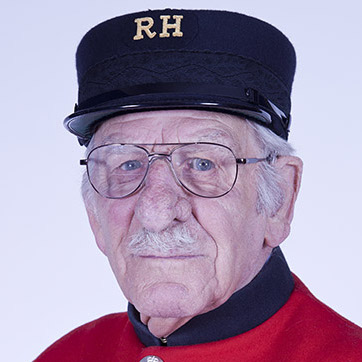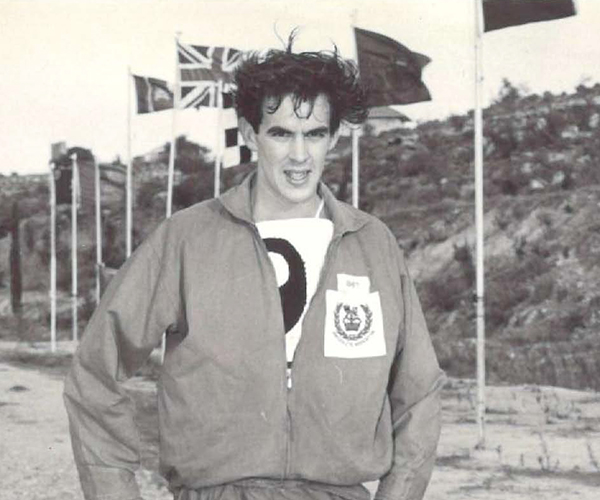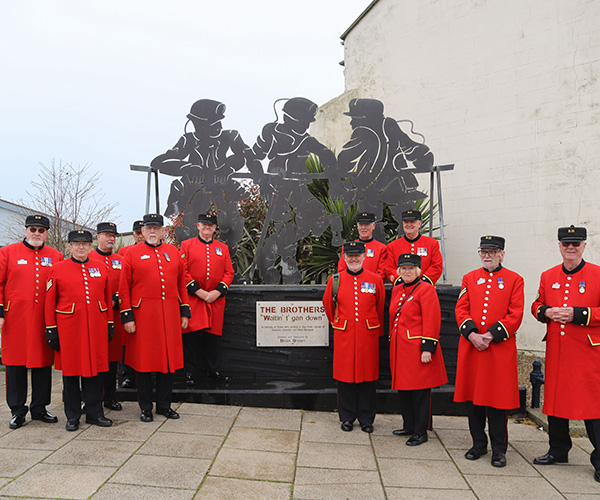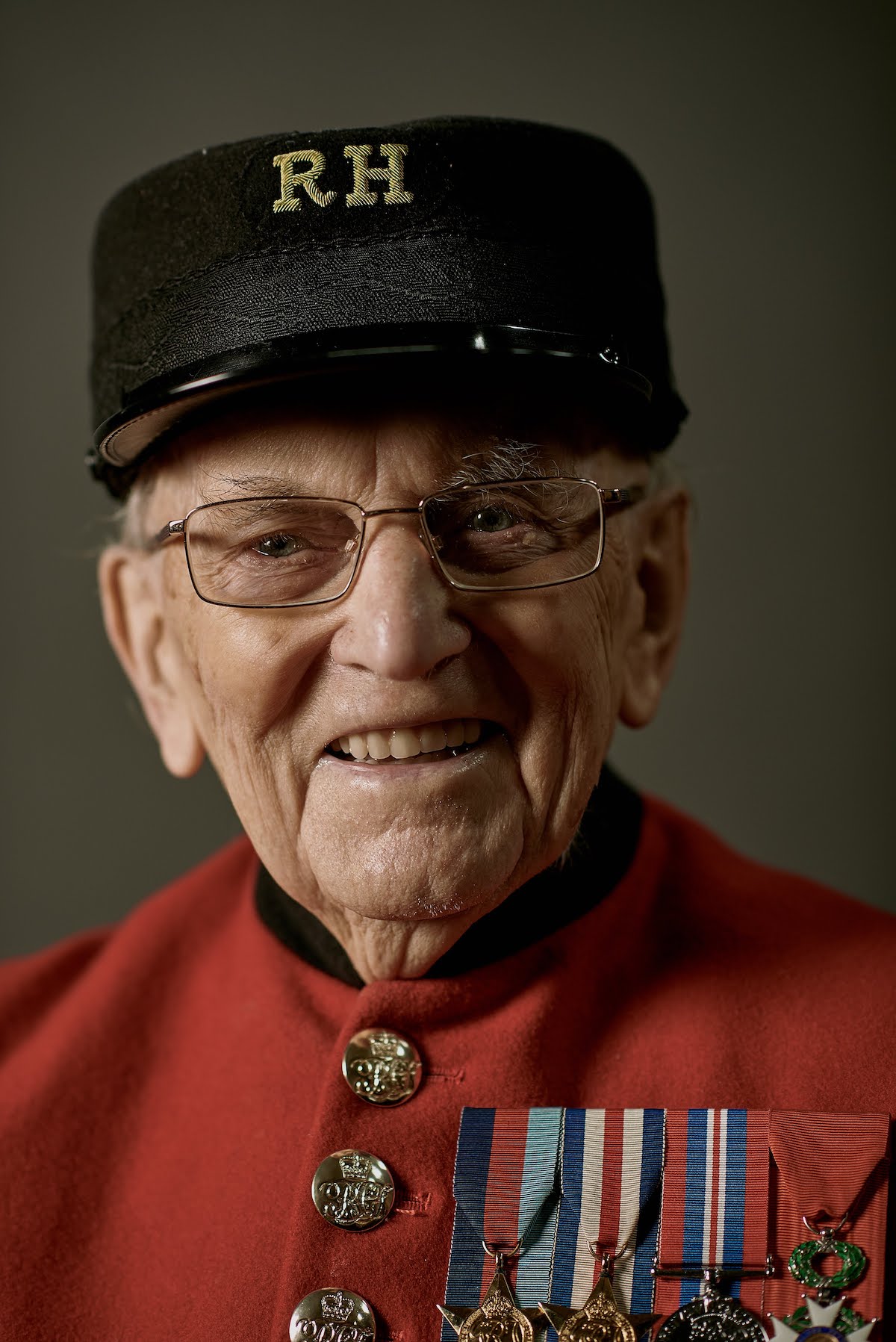
After his wartime experiences, Bill Fitzgerald married his childhood sweetheart Eileen and had two sons. He had a long career as an engineer before coming to the Royal Hospital. His father – a veteran of World War I – was a Chelsea Pensioner before him.
Bill Fitzgerald left his Paddington school in 1939 at the age of 14. His mother and sisters were evacuated, his older brother joined the airforce, and Bill was left in London with his father throughout the Blitz. At 16, Bill joined the Army cadets and two years later he was called up:
“We did our training up in Norfolk and then I joined the Sussex regiment. But after about six months we were told that half of us would be going to Italy and the other half would be staying in this country, to join the Desert Rats, who had come back from the Middle East. All of us lads were just 18 years of age – just imagine – and they knew if we were to start a D-Day landing, we wouldn’t stand much of a chance, so we joined them to get ready.”
Training and trickery
The new recruits began an intensive training programme under the guidance of the experienced soldiers.
“We travelled from Southend up to Carlisle. We were really roughing it, under canvas all the time. We were doing manoeuvres all the way up and down. The chaps put us through it and told us what to do. They told us that if we were hand fighting we had to be fast: ‘Shoot as quick as you can, don’t hesitate, because they won’t wait for you’ they said. We learned a lot in those nine months from real soldiers.”
After that, Bill and his fellow recruits were sent to camp in the woods near Dover:
“Now we didn’t know, but there was a deception called Operation Bodyguard, to make the Germans think we were going to invade Calais. When we looked into the distance, over the fields, you could see a load of tanks, aircraft and military vehicles all over the place. We were never allowed to go out there. And after the war we found out they were all made of rubber! It worked too. The Germans must have thought they have three or four armies over there with all that stuff.”
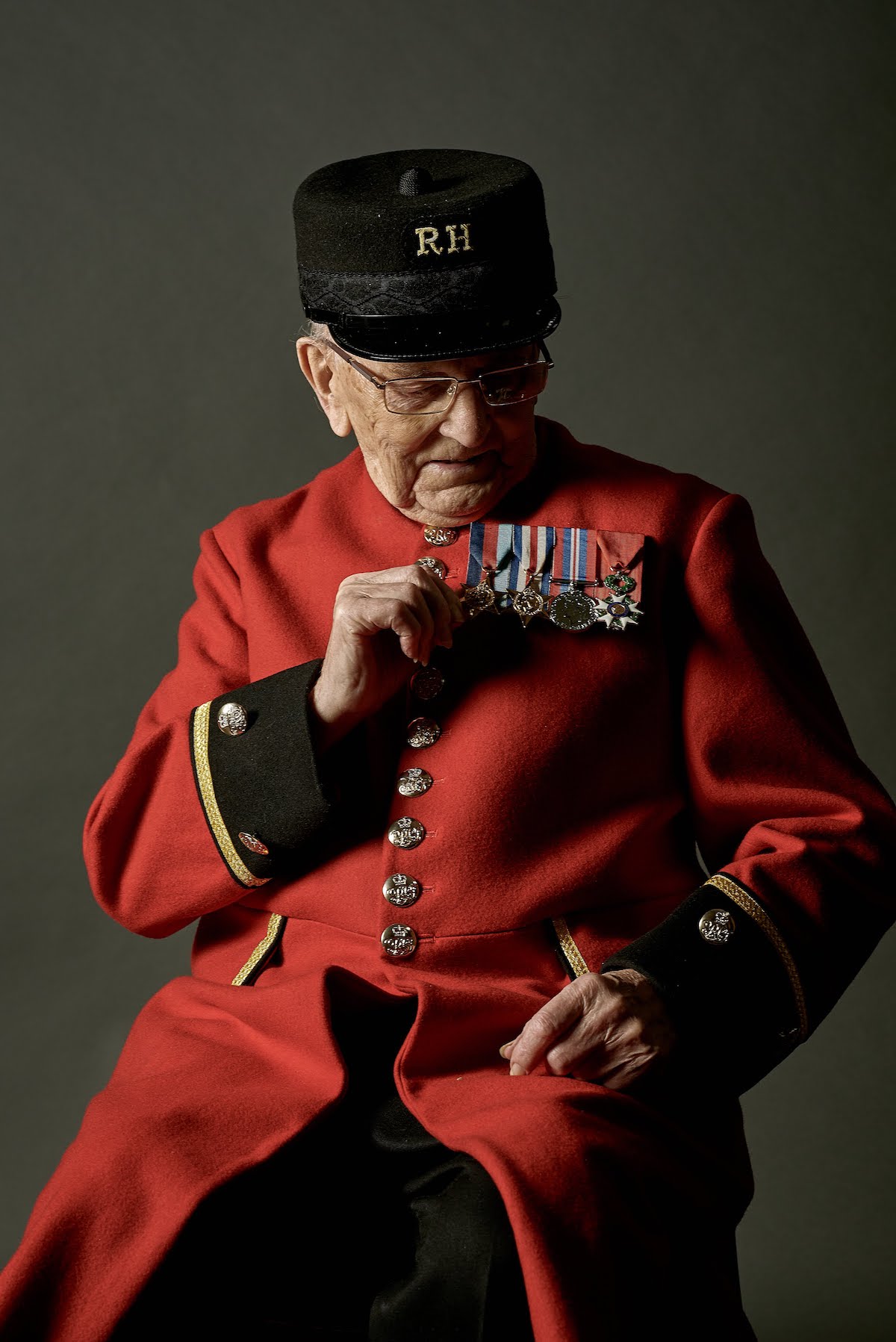
Soon after, Bill’s regiment moved to Portsmouth and on the 4thJune they sailed for Normandy. But, due to bad weather, the landings planned for the 5thwere postponed until the following day.
“We were out in the Channel and we just waited – thank goodness there wasn’t a strong German airforce. As we were travelling over, we saw these barges towing over big blocks of concrete – it was called the Mulberry Harbour. They were going to put them all together and make a road from the beach out to sea, to bring all the stuff in after the beaches had been taken. Afterwards, when I came back, I saw all these lorries coming along in the sea. It was a marvellous idea!”
As Bill’s ship approached the shore, they saw landing crafts go past them with the marine commandos, who were leading the way:
“As soon as they moved forward, we got up steam. Then as we got nearer we got on the landing craft. We were unlucky, because we hit something under the water – there were mines and all sorts. So we stopped and a sailor got a rope and walked straight to the beach. We got in the water and it must have been six feet deep. We had to put our rifles over our heads and one hand on the rope. We worried about the lads who weren’t very tall. We tried to get one between us, so they wouldn’t panic. Some of them never got there, I’m afraid.”
The scene on Gold Beach was harrowing:
“There were bodies floating in the water. There was a loss of about 50%, but you didn’t have time to feel anything. You were helping each other, hoping to get off that beach straight away. There was a beach master shouting ‘Get off the bloody beach as quick as you can – up, up!’ So, we got off as soon as we could and regrouped in the woods.”
“I remember going up in the air with shells all around me”
With the marine commandos leading the way, the regiments continued to advance:
“The Germans were further up, the marine commandos had pushed them back. Once they’d done their duty, we’d hop over them and advance. We’d hold the line and the next regiment did the same, until we all consolidated. There were lots of French people there and they were dead scared and didn’t know what was happening. We were there for about two days and then they got the Mulberry Harbour going and the tanks got off it. And our regiment was told to follow them. From then on, we had to fight our way forward. Then they decided to take a rest in this forest, the tanks and all of us.”
Bill and his comrades had just sat down and taken off their packs when disaster struck:
“We never knew what hit us. We were shelled to bloody bits. I remember going up in the air and coming down and hitting the ground again. A soldier grabbed my helmet and put it over my face saying, ‘Keep still Bill, keep still’. I never found out who he was – I call him my unknown saviour - but he stayed with me until the stretcher bearers turned up. What I didn’t know was the shrapnel had broken my femur in two.”
Bill was given morphine and his leg bound together before he was taken to the field hospital and from there he was flown home.
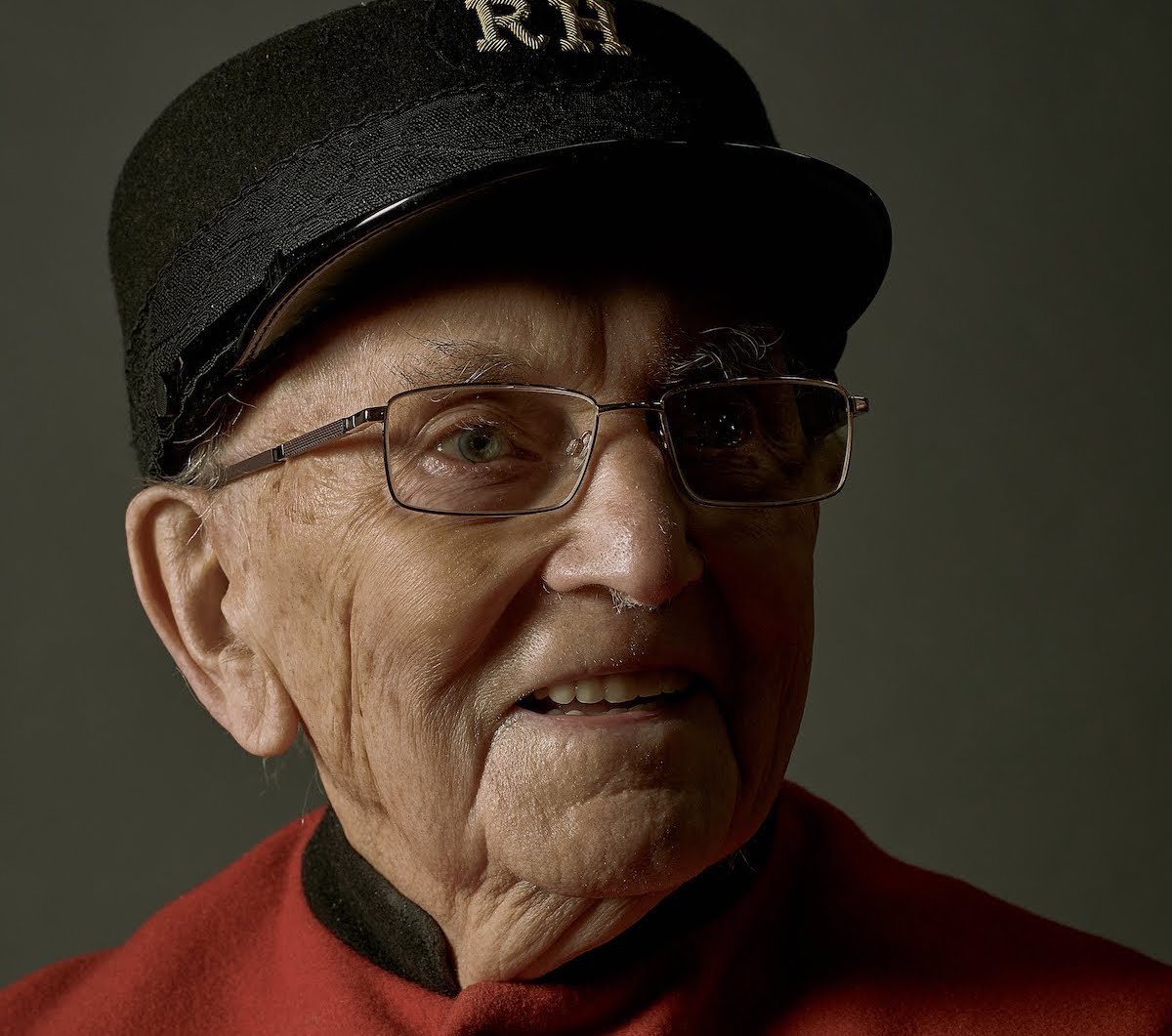
London was being bombarded by flying bombs, so Bill was sent to Chester where he was operated on and ended up in plaster for nine months. There were some consolations though:
“When we got off the train, they were all clapping and cheering us. And in the hospital, because we were all wounded British soldiers, the girls were coming in with their American boyfriends, giving us cigarettes and chocolate and stuff like that.”
Eventually, Bill was sent down to St Mary’s Hospital in Paddington, before rehabilitation in Windsor. Although he didn’t lose his leg, as he feared, the injury left him with it an inch and a half shorter and he also sustained shrapnel wounds in his head. His experience left psychological scars, as well as physical ones.
“I thought I was going to die. It took me a long time to get over it. When we got home, there was nobody there to help us – not like there is now. I was lucky, because I started going out with my girlfriend again and we got married in 1948. Eileen was a great support. She was the one who looked after me and got me through. She used to say to me ‘You’re climbing up the walls in the night-time.”
Although now it seems “like a dream”, Bill’s memories of D-Day endure:
“I think about it all the time. You never forget. You always remember the lads who didn’t come back. We had to do it though, looking at what happened to the Jews.”
